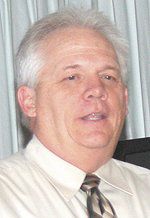Creating vigilant, prepared and resilient communities for homeland security was the topic of training sponsored by the Local Emergency Planning Committee. The training was held at the county building and Richard Hendrik was the trainer. He is a retired police chief from Logan.
The training included a lot of hands on exercises and collaboration between participants. The trainees were divided into three groups and these groups worked together on the training exercises. The teams were encouraged to look at their involvement as part of whichever community team they represented. Those taking the class were from a variety of community networks including, Emery County Sheriff’s Office personnel and Emery County Drug Task Force, Emery County Personnel, Rocky Mountain Power representatives from the local power plants; Emery County Ambulance, Southeastern Utah Homeland Security personnel; Medical Reserves personnel, Logan LDS church emergency preparedness team and the Emery County Progress newspaper.
Hendrik said, “As a member of a community team, it is important to be able to work together and understand the stages of group dynamics and team building as you complete your work.” Hendrik outlined ground rules as the teams learned to work together. Rules included: be prepared to start and end on time; direct your attention to the front of the room; get everyone involved; respect the opinions of others; be an active and emphathetic listener; do not label others; recognize the value of making mistakes.
Hendrik assigned the three teams to work on a plan of action for a community problem. They were to brainstorm and identify a problem and possible solutions to the problem. Previous classes Hendrik said had used putting 72 hour kits into the community as their problem other ideas included evacuation plans for communities. Hendrik said all of the plans developed in the training classes are complete action plans and can be accessed at the website.
The three teams went to work on their plans. Team one came up with preventing prescription drug abuse in the community; team two wanted to establish an information center where all those who provide services can come together to dissiminate information; team three wanted to prevent the spread of flu and other diseases through appropriate hand washing techniques to be employed beginning in the elementary schools.
Hendrik said if communities become prepared for disaster then they will be prepared for all types of disaster; if you are prepared then you are prepared for whatever situation might arise. Events of national significance included: hurricanes, wildfires, chemical spills disease control, riots, major sporting events, political events and rallies.
Hendrik said with the terrorist attacks of Sept. 11, 2001 homeland security changed. Their goals and objectives include: The dramatic and far reaching impact of terrorism over the past decade has resulted in a re-ordering of priorities and a new commitment to enhanced security at all levels of government across the nation. In the aftermath of these unprecedented events within the United States and across the globe, the nation must continue to enhance its national all-hazards preparedness.
The participants listed hazards that are a particular concern for the Emery County area: coal mines, power plants, railroad, Interstate 70, weather related events, mud slides, snow, earth quakes, dams along fault lines and fires.
Hendrik introduced the students to problem based learning and doing things with specific intent. There are five basic steps in problem based learning, these include: ideas, known facts, learning issues, action plan and evaluation.
Hendrik said as new groups form and people come together and meet each other various things take place. The leader will direct and there is little agreement on group goals and purposes and individual roles and responsibilities are unclear. Communication is low when groups are forming.
Hendrik said storming comes in as people struggle through the discomfort of being part of a new group. The group leader coaches, group members vie for position and struggles erupt over approaches, direction and control; compromise may be necessary to enable progress. Hendrik described norming as when people find common ground and performing is when the group is working and things begin to happen.
In order to build successful teams to deal with the problems in a community you need to have the following characteristics as part of an effective team.
A meaningful mission must be identified with a clearly defined outcome. An understanding of cultural norms and their impact on communication, problem solving and conflict; a set of shared values that clearly demonstrate dignity and respect; a cultivation of different viewpoints; a willingness to get the job done; loyalty and devotion to the team experience; a desire for individual and collective growth; openness to new experiences and processes; shared laughter and humor as part of the team experience.
Hendrik introduced the characteristics of critical thinking to the trainees. Critical thinking helps uncover bias and prejudice. Critical thinking is a path to freedom from half-truths and deceptions. Critical thinking requires the willingness to say, “I don’t know.”
Critical thinkers are: inquisitive with regards to a wide range of issues; concern to become and remain well-informed; alertness to opportunities to use critical thinking; trust in the processes of reasoned inquiry; self-confidence in one’s own abilities to reason; open mindedness regarding divergent world views; flexibility in considering alternatives and opinions; understanding of the opinions of other people; fair mindedness in appraising reasoning; honesty in facing ones own biases, prejudices, stereotypes, or egocentric tendencies; prudence in suspending, making or altering judgments, willingness to reconsider and revise views where honest reflection suggest that change is warranted.
Part I: Creating vigilant communities for homeland security

"Richard Hendrik is the instructor for homeland security training."
